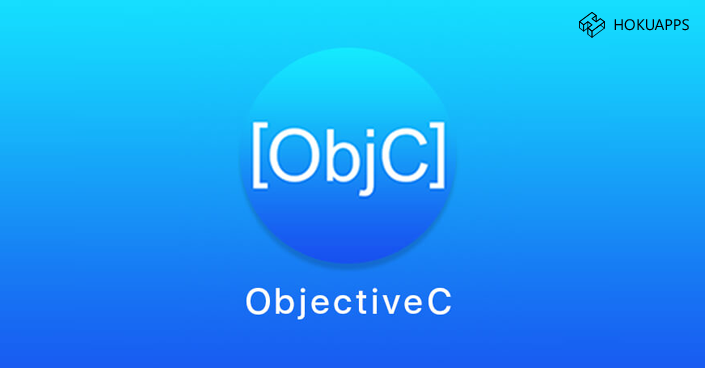- Products
- Solutions
- Services
- Resources
- Customer Success
- Company
- Sign In
- Contact Us

Digital Transformation enabler helping enterprises evolve by connecting technology
Take a look at upcoming webinars and special events
HokuApps news and media coverage
Be with the best. Solve real problems
Get in touch with our experts here
Explore our extensive collection of online resources here
Information and insight on transformation to the Digital Workplace
Quick Guides provide concise information on a variety of topics
Discover the essence of HokuApps’ products
Learn all about HokuApps’ cutting-edge enterprise mobility technology

If you have decided to read this article, chances are that you have a brilliant idea for an iOS app and are en-route to get your project rolling. Well, congratulations and our best wishes to you.
However, we are here to provide you with more than just ‘good luck and shamrocks’ for your application development journey. In due course of this read, we hope that you will be able to discover some valuable information regarding iOS mobile app development.
In your quest to hire iOS programmer, you will often times encounter a looming question. A question we intend to pose to you right now—
“Which is the best language for iOS app development, Objective-C or Swift?”
In order to answer that question in the best possible way, as with any question, you will need to have a basic familiarity with both these languages. And as long we are on the topic of understanding these languages, we may as well start with Objective-C.
Have you ever wondered, what allows iOS apps to give users an unmatched experience with perfectly balanced design and content? The answer here lies in the use of object-oriented programming (OOP) in the app development process. In fact, iOS development is primarily developed using the Cocoa framework which specifically requires object-oriented programming. And that is where Objective-C comes in to play. Objective-C is, as you may have already guessed, an object-oriented programming language that is an extension of your standard ANSI C language.
But, if there already exists an object-oriented programming language like C, why would you use another language like Objective-C?
The reason you would be much better off using Objective-C rather than C is that compared to other object-oriented languages, Objective-C offers a more dynamic medium for coding.
This essentially means that when you hire iOS programmer to work on your project, they will be able to take advantage of the Objective-C dynamic library bindings. A method that is capable of accommodating a simple architecture while allowing the designing of interactive interfaces.
The dynamic nature of Objective-C also allows the hire iOS programmer to construct complex development tools, while a runtime system provides data that allows the developer to better monitor and understand the foundational structure of these applications.

By now you must be wondering why to talk about another programming language if there already is a perfectly capable object-oriented programming language that serves the purpose of iPhone application development.
Well, the human mind is always at work, trying to come with ideas that are aimed at making our lives better – easier – faster. Although this is more of an end-point argument for you, it is quite applicable to the topic at hand.
In June 2014, Apple revealed to the world its latest instrument of iPhone application development Swift. While Objective-C remained an option for iOS developers, Apple made it clear that Swift would steadily replace Objective-C as the developers’ language of choice. Why did it predict such an outcome? Let us take a look.
One of the key differentiators between Swift and Objective-C lies in their foundation. While Objective-C operates on the standard ANSI C legacy, Swift has managed to take the best of many languages. For example, it implements optional arguments that are comparable to nullable types in C#, while its variable declaration closely resembles that of Pascal. Such a mix of attributes allows it to have faster algorithms as compared to Objective-C.
Objective-C is built on the principles of C. While that grants certain advantages from an object-oriented language perspective, it is also no surprise that it also includes certain potholes. This is primarily because C is not as reader-friendly as one would hope. Swift, on the other hand, unifies all keywords and eliminates the need for an introductory function, making it easier to read.
Objective-C had shown the path of Automatic Reference Counting (ARC) across the Cocoa framework and object-oriented codes. Automatic Reference Counting essentially provides a way to monitor and manage your app’s memory usage. Swift, however, expands the implementation of the ARC to the entire procedural and object-oriented code flow. This new language, therefore, eliminates the threat of memory leaks.
Like we said before, Swift does away with legacy conventions of other object-oriented languages and adopts a unique approach syntax. This means that when you hire iOS developer for your project, working on Swift practically eliminates the need to use syntax like semicolons or parentheses. Rather, Swift uses a comma to separate parameters. This simplified syntax results in a cleaner, more understandable language.

Despite the fact that Swift grants a wide range of advantages over Objective-C, it is really your need and nature of your application that will have the final say in the choice between these two languages. So, understand the unique need of your application and choose wisely. Beyond that, it’s the magic of your idea.